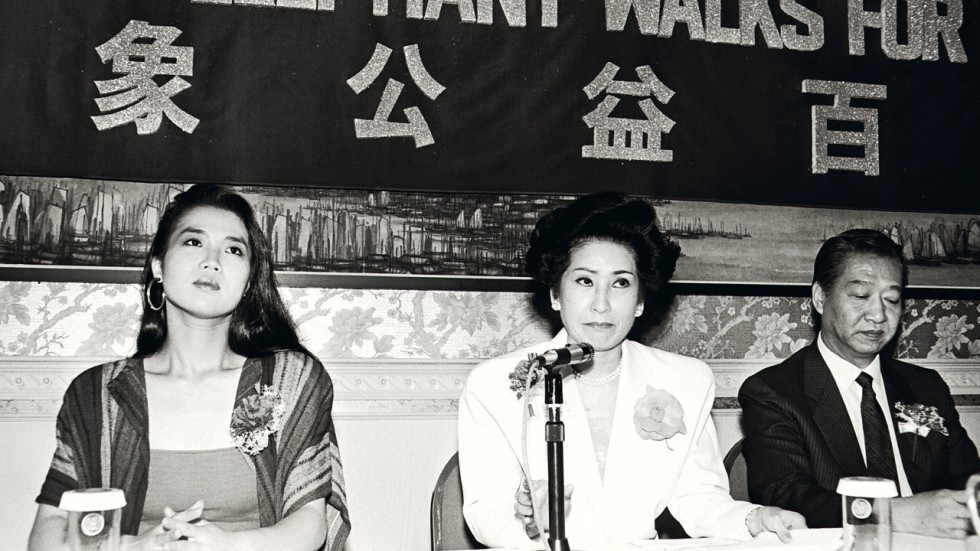
The children of two prominent Hong Kong philanthropists have lost their decade-long legal bid to claim HK$500 million (US$63.7 million) from an American bank and its manager, whom they accused of failing to properly advise their late mother during her last days, resulting in “heavy losses” in her investments.
The civil suit against Citibank and Hailey Amy Mak Seen-kwan was lodged in 2008 by Shine Grace Investment, held by Anson, Johnson, Lily and Zandra Chan, the four children of late philanthropic educator Chan Shu-kui and his wife, Anita Chan Lai-ling.
Before her death in 2007 from a drug overdose, Anita Chan owned the firm and had a net worth of HK$3.5 billion (US$453 million).
The dispute stemmed from a financial product known as equity accumulator contracts. Chan, through her firm, had invested in nine of them via Citibank and Mak, her account manager, two days before her death on October 17, 2007.

Shine Grace argued Mok and the bank misled their mother and the company, while failing to disclose the risks involved in the investment.
But Mr Justice Peter Ng Kar-fai ruled on Monday that neither the bank nor the manager had a duty to advise them.
In a 90-page judgment, Ng acknowledged Mak made 38 phone calls to Chan in her final two days. He ruled however the account manager had not made any misrepresentations to her.
And even if she did, he found, Chan – “a very strong-minded person and enthusiastic, a confident and prolific investor” – would probably not have paid heed to her advice.
“Mrs Chan was so strong-minded and confident that once she had formed a view to go for a particular trade, the defendants’ staff, as well as her other bankers, were expressly instructed not to interfere,” Ng said.
Mak and Citibank were therefore not liable for the company’s losses of HK$478 million as alleged, and hence owed no compensation, he ruled.
A spokesman from Citibank said it welcomed the court’s decision, adding that the judgment confirmed its “strongly held view that Citi and banker Hailey Mak had discharged all required statutory and regulatory duties and the accumulator investments were sold appropriately”.
Bank pressed client to sign, court told
Equity accumulators are a form of financial derivative product in which an investor bets that a company’s stock trades within a certain range.
They are required to buy regularly – thus “accumulating” shares – over the length of the contract.
But the investor can terminate it early and get their profits back immediately if the share price rises to a “knock-out” level.

Shine Grace Investment had argued Mak and the bank had failed to advise Chan about the unsustainability of such investments and failed to properly advise her on the risks involved, leading to losses.
But the judge noted that between 2004 and 2007, Chan made HK$180 million with other accumulator contracts, HK$146 million of which was made in the year she died.
He said the information conveyed to Chan regarding the nine contracts in question was no different from what she received on the ones she had made huge profits with earlier on.
Frustrated family still waiting to have their complaint heard
“What was so unsuitable about the disputed ACs that the defendants were supposed to advise?” Ng asked. He also noted Chan’s last purchases seemed to have been in line with her investment strategy all along.
The judge disagreed that Chan should have been warned about the potential losses, which, Shine Grace argued, were so risky that the maths involved was akin to a “black box” calculation.
Ng ruled that it had never been the market practice to provide such information. The calculations would be so complicated, according to one expert, that they were more likely to “confuse than enlighten investors”, the judge said.
Doctor not guilty of supplying 5,900 pills to socialite Anita Chan
Chan was admitted to hospital days before her death but had been discharged at the time she made the decisions on the investments concerned in the lawsuit.
“Notwithstanding her recent hospitalisation,” Ng said, “this court finds Mrs Chan’s cognitive ability was not impaired any significant extent, and she was able to make investments decision of her own accord and in what she considered to be her best interests.”
On October 17, 2007, Chan overdosed on potent painkiller patches prescribed by a doctor.
Her husband, Chan Shu-kui, had been known for running and managing schools in the city, as well as operating cinemas and distributing films from Hollywood and Taiwan between 1950 and 1970. He died of a heart attack in 1973.







